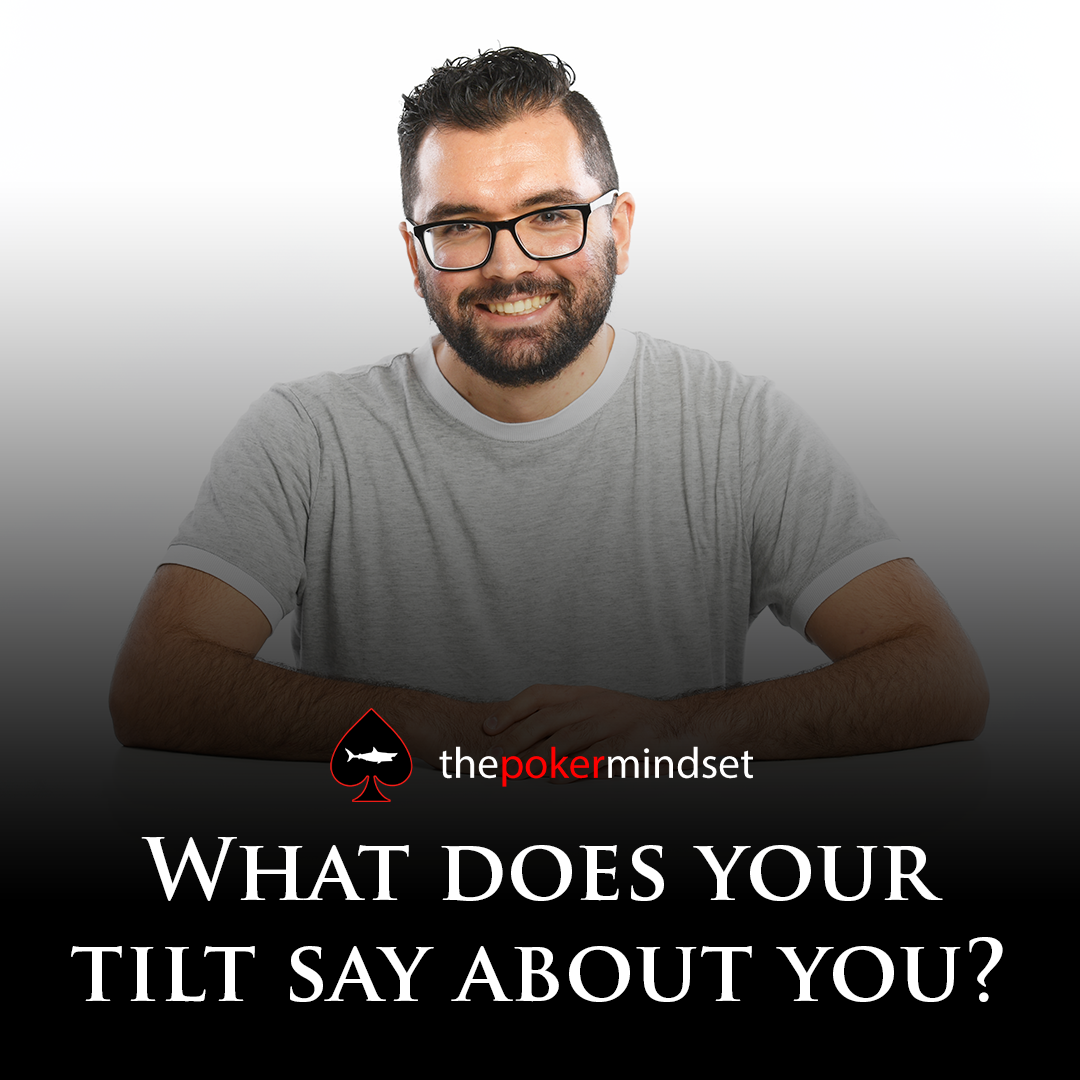Today I bring you a special guest on the blog, Coach Bahman.
I’m sure you will like his article, enjoy!
Bahman is no stranger to performing on a high level under extremely stressful circumstances with high stakes. He started his first business in the music entertainment industry, grew his social media brand, and started his High-Performance mindset coaching business. He did all of this without a degree, no funds and, being homeless during his 20s. At 30 years of age, he has already seen and been through more than most. Growing up around alcoholism, PTSD, depression, abuse, and neglect but also around investors, business owners, and entrepreneurs. This gave him a broad scope of experiences and the lessons he needed to become an extraordinary mindset coach.
We have all been on tilt before. Tilt is basically deviating from your optimal strategy because of emotions. We let our emotions get the best of us and make stupid decisions we regret afterward. Why do we this and what does our tilt say about us?
The brain.
In order to explain this, we need to understand the brain and how it works. There are 2 parts of the brain that are relevant to tilt. The cognitive part of your brain and the emotional part of your brain.
The cognitive part exists of 2 lobes. The frontal lobe and the temporal lobe. The frontal lobe is responsible for your decisions, judgment, planning, organizing, and other cognitive skills. The temporal lobe is responsible for having access to long-term and short memories. As you will probably understand, both of these lobes working together is key to a winning strategy.
When reality does not align with our expectations, for example, a bad beat, we get stressed out. Stress makes the limbic system create several emotions, anger, sadness, shock, and these emotions can overrule your cognitive skills.
In basic terms, your emotions take the wheel and start driving your car. Emotions are primitive, they go for short-term rewards instead of long-term rewards. So you start to sabotage yourself until you eventually hit the pain threshold or the pain is removed by for example winning money back.
Now you sober up, you feel stable again and regain full access to the cognitive part of your brain and realize how stupid you were. You start to relive those decisions and by doing that you can develop a form of PTSD: Reliving certain events over and over again and experiencing the emotions connected to them. It can cloud your judgement, lose trust in yourself and that’s a slippery slope.
What does your tilt say about you?
Now that we understand how tilt works we can dive into a deeper level of self-learning. How does my tilt manifest itself and what does say about me and how can I learn from it?
Over 90% of our emotional challenges in adulthood stem from childhood. Some minor or major childhood trauma can impact us in several ways.
Here are 3 examples of different types of tilt and what they can say about you.
Entitlement tilt
Entitlement tilt is one of the most common forms of tilt. This is connected to the feeling of being treated unfairly. We have all experienced something that was unfair. Whether our dad left our lives, our teacher told us something very unkind or we grew up more poor than our friends. This feeling can trigger something deep within us and force us to react in a very emotional way. This unresolved issue is also called an inner conflict.
Depersonalization tilt
Some people who tilt they depersonalize. In other words, they lose connection with their environment, time, their senses, and themselves. They make ridiculous decisions they only become aware of AFTER getting out of that state. If you look back in your past, you will probably find times in your younger years where you responded similarly to certain situations. It’s a self-protecting mechanism in high-stress enviroments. Becoming aware of what those moments were will help you make sense of it.
Angry at opponent
When you become angry at an opponent after outplaying you, your tilt might stem from childhood abuse or bullying. I personally experience pain when I get outplayed and I feel like they ‘hurt me.’ Now I want to hurt them back. This part of me comes from be being bullied and abused for years. For you, it might be a similar reason.
So what do I do?
There are a lot of ways to deal with tilt but understanding your tilt should always be your step 1. After recognizing the source we can now start to show patience and kindness towards ourselves in this process. Simultaneously we can develop discipline, by waking up earlier, exercising, or meditating. The more you develop discipline the more self-control you will have in the moments when it matters, on the felt. You can document this progress in a journal, video blog, or talk it through with a coach.
The process is not easy but you can play completely free of tilt!
Reach out to me for a FREE 30 min coaching session and let Coach Bahman help you find the source and deal with your tilt.
Go to www.coachbahman.com and sign up!

